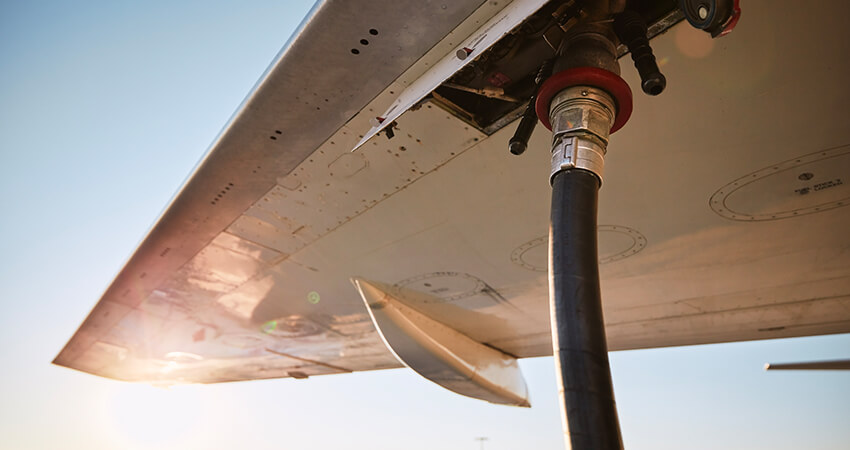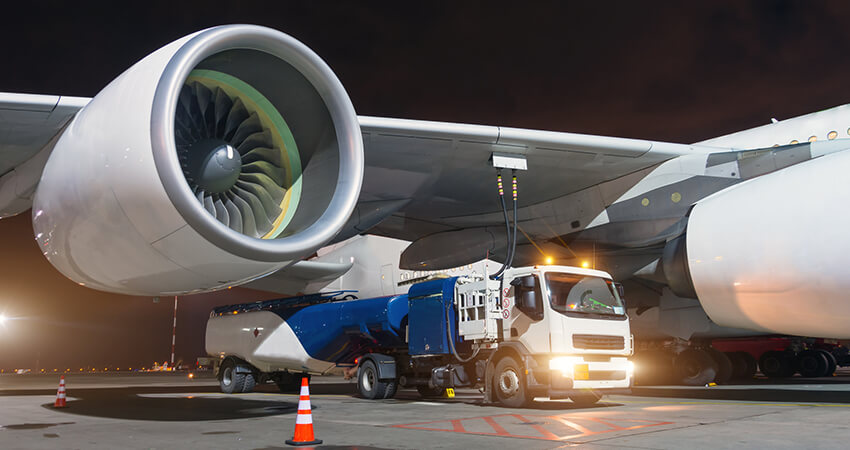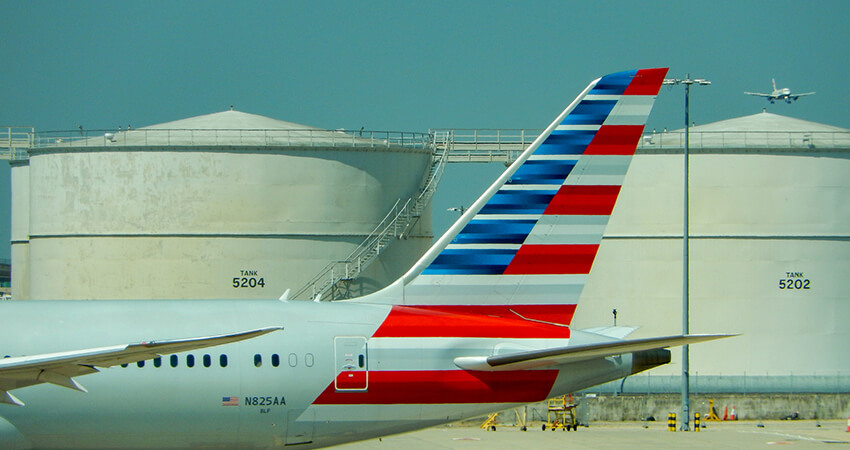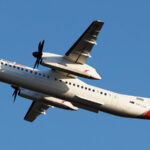The production of Sustainable Aviation Fuel (SAF) is growing. SAF in the US is reaching record levels, according to international reports, in a market where airlines and the government itself are in favor of promoting this sustainable fuel.
In fact, major U.S. airlines are stepping up their efforts to increase the use of Sustainable Aviation Fuels (SAF). This initiative has the potential to radically transform the aviation industry, aligning it with greener goals and contributing to the reduction of carbon emissions.
The future of SAF in the U.S. and globally

A report by GlobalData has shed light on the future of U.S. and global PBS production. According to the report, a significant increase in U.S. PBS production capacity is expected over the next decade.
In addition, North America as a whole will lead the industry, highlighting the importance the region places on sustainability in aviation. However, it will be the United States that, according to forecasts, will lead the production and consumption of this type of fuel by 2030. It will be followed by the United Kingdom, China and Canada.
The report highlights that, by 2030, the United States is expected to reach a production capacity of more than 1.2 billion gallons of PBS per year. This places the United States as the undisputed leader in projected PBS production capacity compared to the rest of the world.
This is a huge amount, representing, for example, half the annual consumption of a country like Spain. This forecast is in line with the target of many of the airlines that expect to exceed 10% of UF use in their flights by the end of this decade.
In addition to the United States, China and Singapore are expected to experience the largest increases in PBS production capacity. A global focus on the production of sustainable aviation fuels is the only possible way forward for the airline industry as a whole to adopt more environmentally friendly practices in the global aviation industry.
American, United and Delta committed to SAF in the U.S.

Major U.S. airlines are committed to incorporating SAF into their fuels through various corporate actions. For example, United Airlines reported that it will triple its use of SAF by 2023. This quantum leap is part of United Airlines’ commitment to sustainability and its willingness to participate in the transition to greener fuels.
Not far behind is American Airlines, which doubled its use of PBS in 2022. underscoring its determination to actively contribute to reducing the aviation industry’s carbon footprint. In addition, the company claims that in 2020 and 2021 it used more sustainable fuel than any other airline.
Meanwhile, Delta is also in the game. The company has signed agreements with suppliers to reach 10% SAF by 2030, the big goal of all airlines. “Building up the market for SAF and other clean aviation fuels has benefits that reach far beyond their important climate and environmental footprint,” said Delta V.P. of Government Affairs- Sustainability, Cherie Wilson.
In all three cases, they agree that they are seeking to eliminate their net emissions by 2050. They have the support of the federal government, which has a number of programs through the Department of Energy to support these types of technologies to gradually reduce the environmental impact of aviation.
What’s happening in Europe

In addition to the United Kingdom, which will support the production of these fuels, the European Union is also seeking to give impetus to this strategy to reduce emissions. Several EU countries have begun to require airlines operating in their countries to use PFS in their operations. This measure also aims to reduce dependence on fossil fuels.
The future, with challenges and opportunities
Leading U.S. airlines are demonstrating that it is possible to move toward a greener future. The growing adoption of UFAS represents not only an environmental commitment, but also an opportunity to improve operational efficiency and reduce dependence on fossil fuels.
However, airlines and fuel suppliers face enormous logistical and technical challenges in making the transition to sustainable fuels. It involves setting up a new fuel production system that also relies on different materials.
Therefore, the successful implementation of SAF will require not only the commitment of airlines, but also investments in production and storage infrastructure. Collaboration between industry, governments and other stakeholders will be key to overcoming these challenges and paving the way for a more sustainable aviation future.










